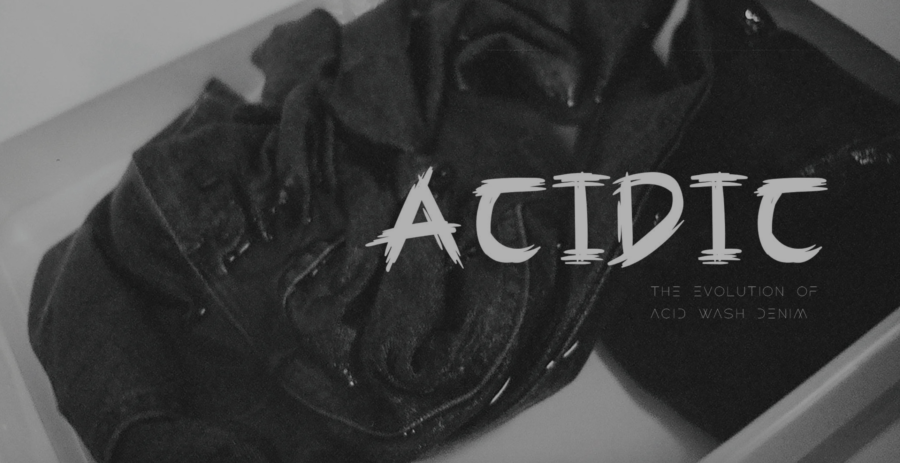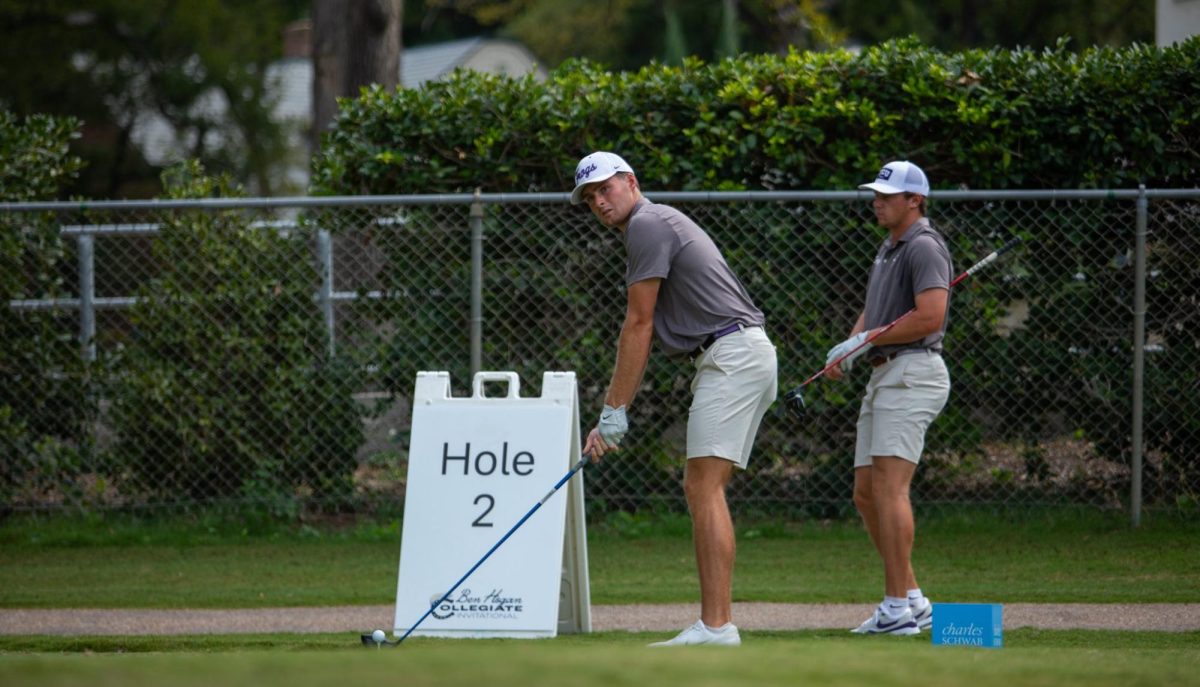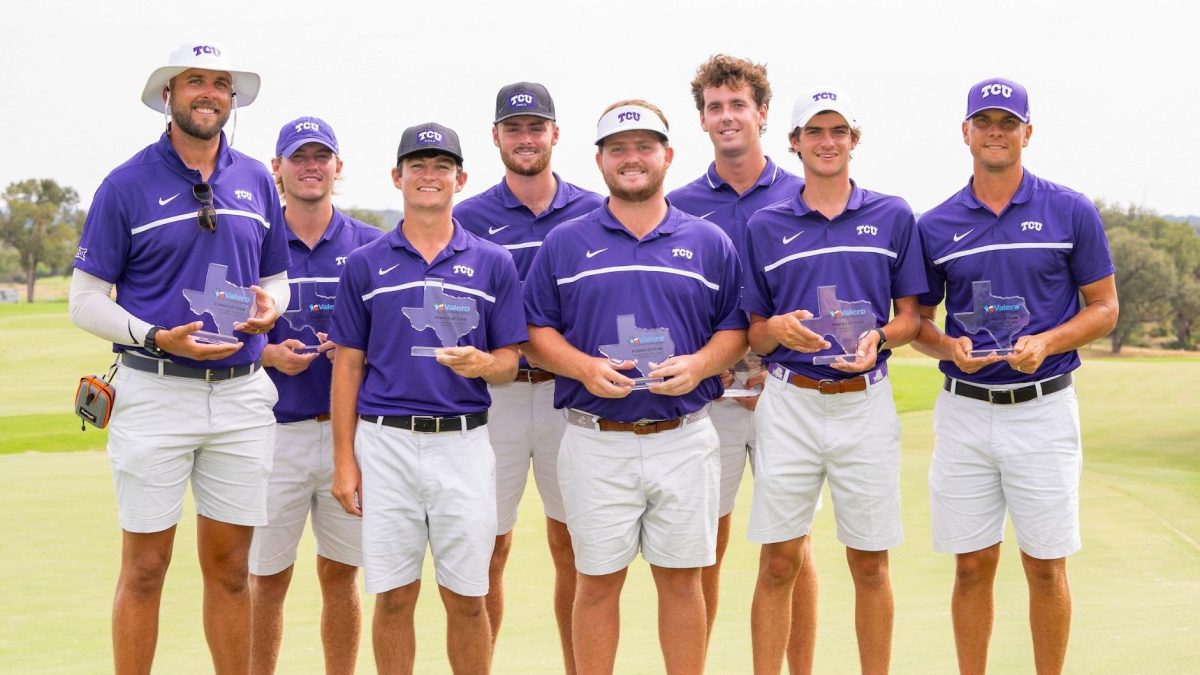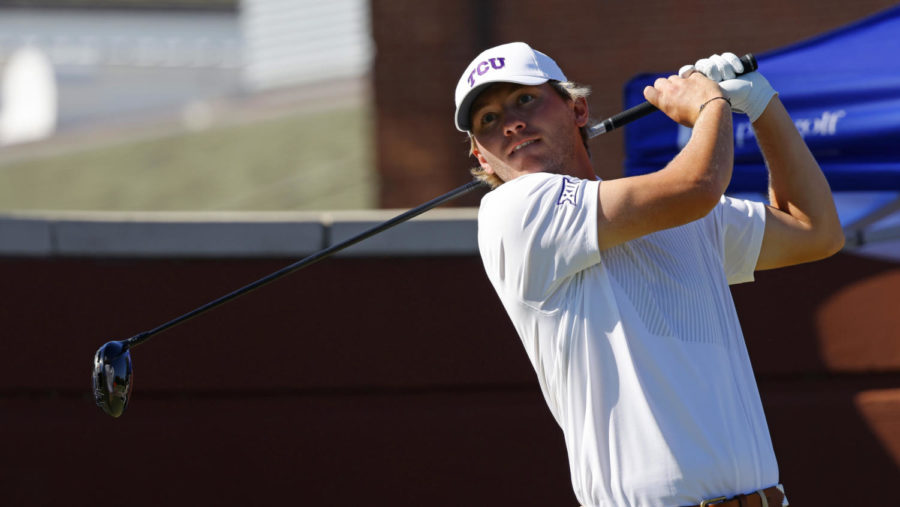If there was anything Julien Brun did more of last year – as in more than any TCU golfer ever – it was win.
He took three tournaments, a school record, including his first college event last October.
But it’s hard to forget the rest of the Frenchman’s freshman year, which combined with the wins made it the greatest individual season in program history.
Consider: Brun was a first team all-American. He maneuvered his way into Golfweek’s top 10 individual rankings, finishing the year at No. 8. And in May, he posted a 4-under 67 in the final round of the NCAA Tournament at Riviera Country Club in Los Angeles.
As the sun hovered behind the Santa Monica Mountains that evening, Brun stood in second place, three strokes from winning the national championship.
But Brun, who in October represented France at the World Amateur in Turkey, isn’t ready to turn professional even as it’s become a “common question” thrown his way.
And he’s OK with that.
“To turn pro, you have to be ready,” he said. “You don’t want to turn pro to work on your game. You just want to turn pro and play.”
Golf is a mental game.
It’s unique in that a 16-year-old can have as much talent as a touring pro, but a middle-aged man can compete with the kids. Jack Nicklaus was 46 when he won his last major. Tom Watson nearly won the Open Championship at 59.
So much is decided within the mind.
“For me, [mental game] is the biggest part,” Brun said. “It comes around on every shot. You have to decide what shot you’re going to do, what club you’re going to hit.
TCU coach Bill Montigel sees a certain level of maturity in Brun.
“He’s the best player I’ve ever had as a freshman,” said Montigel, who found Brun two summers ago at the European Amateur Championship.
“If he makes a bogey or a double, he just takes his clubs and puts it in his bag and walks to the tee box,” Montigel said. “He doesn’t really try any wild shots out there. He just gets out of trouble.”
Golf is an uncertain game.
Sometimes success at the collegiate level doesn’t translate to the pro level, at least not immediately.
Peter Uihlein won the 2010 U.S. Amateur and the 2011 Ben Hogan Award but missed the cut at Masters and U.S. Open last year. He returned to Oklahoma State last August but decided to turn pro in December.
Ten months after leaving OSU, Uihlein (as of Oct. 1) sat in 23rd place on the Challenge Tour money list, Europe’s version of the Web.com Tour.
Uihlein left after a successful junior season. One extra year might not have made a difference, but his early struggles to break through show how difficult making the jump from the collegiate to pro level can be.
Patrick Cantlay’s career path could provide a better Litmus test for leaving early. Cantlay, 20, turned pro in June after his sophomore season at UCLA. Like Uihlein, Cantlay was the world’s top-ranked amateur. He missed the cut in his first event as a pro but earned $92,683 over his next five tournaments. Cantlay turning pro “was the right time, probably,” Brun said.
Every situation is unique in its own, but staying in college is rarely a bad option, Montigel said.
“There’s so many more things involved,” Montigel said. “I can go on and on of guys who stay in college and stay on the PGA Tour. They get so much more out of going to college.”
Golf is a lonely game.
In college and high school, there are teams. The pros have the Ryder Cup. And, in 2016, golf will make its Olympic debut.
Still, teamwork can only help so much. Brun grew up in Antibes, France, a resort town on the country’s southeastern edge. Northern Italy was an hour up the coast. The winds off the Mediterranean would sway the palm trees and breeze over the red-topped buildings lining the city’s crowded streets. Florida reminds Brun of home, he said.
When he was six, Brun would trail alongside his father, Christophe, up and down the fairways of local courses. Julien eventually picked up the game.
By the time he was a teenager, he was competing on a regular basis, and when he was 15 he started playing throughout Europe. He would travel alone.
“[Europeans] are more used to being on our own more of the time,” Brun said. “Our parents are not on us all the time.
“You know what life is. You learn life.”
A few days before TCU’s fall opener at Pebble Beach, Brun and teammate, Paul Barjon, stood in a white-sanded bunker near the edge of a practice green at Colonial Country Club north of campus. Barjon, a freshman, went to high school in Antibes.
The August sun blistered across the course, and the swelling humidity of a coming rain shower suffocated any cool air being blown over the greens by the giant fans dotting the practice area.
Brun and Barjon hacked away, blasting balls onto the green. After a while, Barjon fetched a couple cans of Gatorade and some water from the clubhouse. The two poked fun at each other as they cooled off, two countrymen with similar backgrounds chasing greatness. They laughed like brothers.
But golf is a lonely game.
The teammates finished their fun. Brun grabbed his putter and three balls and went to a corner of the putting green, taking an orange string from his bag and staking it 10 feet from the hole. Barjon fiddled with another training device on the other side of the green. Brun was alone with his stroke.
Behind him, back toward Colonial’s red-bricked clubhouse, a monument to the game’s greatest shined in the sun. Brun can walk onto the first tee and stand close enough to run his fingers over the names engraved in to the club’s wall of champions. Snead. Palmer. Nicklaus. Mickelson.
“You know where you are,” he said.
If he wants, Brun can picture his name next to theirs. He can feel the club’s red-plaid winner’s jacket sliding onto his shoulders. He can dream of the dollars and endorsement deals.
Brun would go onto win by three strokes later that week, his fourth career title. Later that month, Brun went home to France and won the Allianz Golf Open, becoming only the sixth amateur to win on the Challenge Tour. The victory vaulted Brun to No. 7 in the World Amateur Rankings.
But Brun isn’t ready for the pro game.
And he’s OK with that.
“I don’t think my game is that ready to turn pro,” he said. “I have so much to improve. And I think college is the place to improve.”







